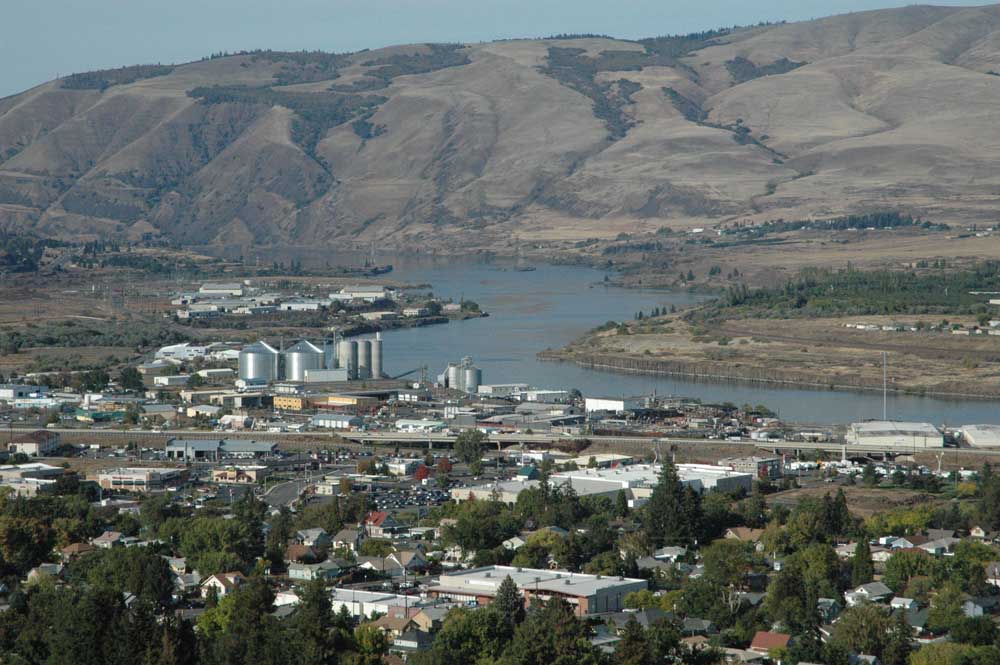Officials planning a behavioral health campus in Wasco County
Published 3:57 pm Thursday, August 15, 2024

- A view from January 2020 of The Dalles and the Columbia River at the east end of the Columbia River Gorge.
Oregon leaders have been planning a campus in the Columbia River Gorge to provide residential mental health care, addiction treatment services and a drop-in center for police to bring people in crisis.
Their work started in 2017 when Wasco County Sheriff Lane Magill gathered input from community and county leaders. Bit by bit, the money is coming together. The county now has almost enough to start building the first phase, thanks to nearly $1.7 million in funding that was announced last week by Oregon’s U.S. Sen. Jeff Merkley, a Democrat who sits on the Senate Appropriations Committee. That money is part of nearly $40 million approved for projects across Oregon. The funding is in bills that still must pass a few hurdles.
Trending
The first phase of the Columbia Gorge Resolution Center project, which aims to shore up services in the gorge, will cost $22 million and involve two 16-bed behavioral health residential treatment buildings. The goal is to get people into treatment and give them the care they need, preventing trips to emergency rooms or jail. The entire campus is projected to cost about $50 million, said Tyler Stone, administrative officer for Wasco County.
“This critical investment will significantly enhance our community’s ability to address mental health needs, provide a safe and supportive environment for individuals in crisis and will reduce strain on our regional emergency rooms and law enforcement agencies,” Stone said.
The first phase of the project still needs $3 million to $4 million, Stone said. But after years of planning, officials anticipate they could start construction within a year at their site in The Dalles.
Additions planned
In the years ahead, county officials plan to raise money and add the drop-in center and addiction treatment facility. When finished, it will add enough beds to treat 48 people at a time, with expanded outpatient services in nearly 58,000 square feet of facilities in The Dalles.
Officials say the area needs these services. Though it lies outside the Portland area, it still faces urban problems like homelessness and drug addiction.
Trending
The need for beds is also acute across the state. An Oregon Health Authority study found the state needs enough beds to treat about 3,700 people at a time for mental health and addiction problems. Creating the facilities and treating an extra 3,700 people would cost up to $170 million a year over five years by adding about 650 beds annually.
“There’s just a huge gap when people need a higher level of care,” said Al Barton, executive director of Mid-Columbia Center for Living, which is Wasco County’s community health provider. “When they need acute psychiatric care, they have to go to Bend or they have to go to Portland. If they need residential services of any kind, the same.”
The provider, which also contracts to provide community mental health services in Hood County and Sherman County, is planning the project with Wasco County. The project can serve people from throughout the surrounding region.
Barton said more than 25 people will be hired to work at the facility when the first phase is completed.
Central, Eastern Oregon projects
Oregon’s Democratic U.S. Sens. Jeff Merkley and Ron Wyden have announced more than $39 million in federal funding for 39 projects in the state to address behavioral health, health care, education and infrastructure needs. The funding is contained in bills OK’d by committees but which still have a few steps to go before final approval.
Some of the projects in Central and Eastern Oregon:
• $3 million for Central Oregon Community College to expand its Madras campus. The funding will go toward construction on the campus for programs to prepare students for careers in health care.
• $1.5 million for Valley Family Health Care Inc. to construct a modern facility in Nyssa that will integrate medical, behavioral, and dental care in this medically underserved area of rural Eastern Oregon. This will replace the current facilities in Nyssa which are aging and spread out. By combining services under one roof, this will increase use of health care services.
• $1.369 million for Vision to Learn to purchase and equip a mobile vision clinic van to expand its free, exam-to-glasses services to students primarily in rural Willamette Valley and Central Oregon public schools.
• $1.356 for Grande Ronde Hospital to purchase a new nuclear medicine machine. As the only hospital in rural Union County, its current machine is operating past its intended lifespan and is expected to lose all manufacturer support in July 2025. This new diagnostic machine will enable treatment for a variety of diseases, including many types of cancers and heart disease.








